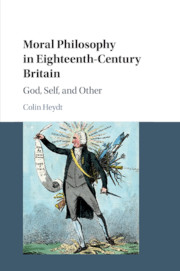Bibliography
Published online by Cambridge University Press: 21 December 2017
- Type
- Chapter
- Information
- Moral Philosophy in Eighteenth-Century BritainGod, Self, and Other, pp. 255 - 275Publisher: Cambridge University PressPrint publication year: 2017



